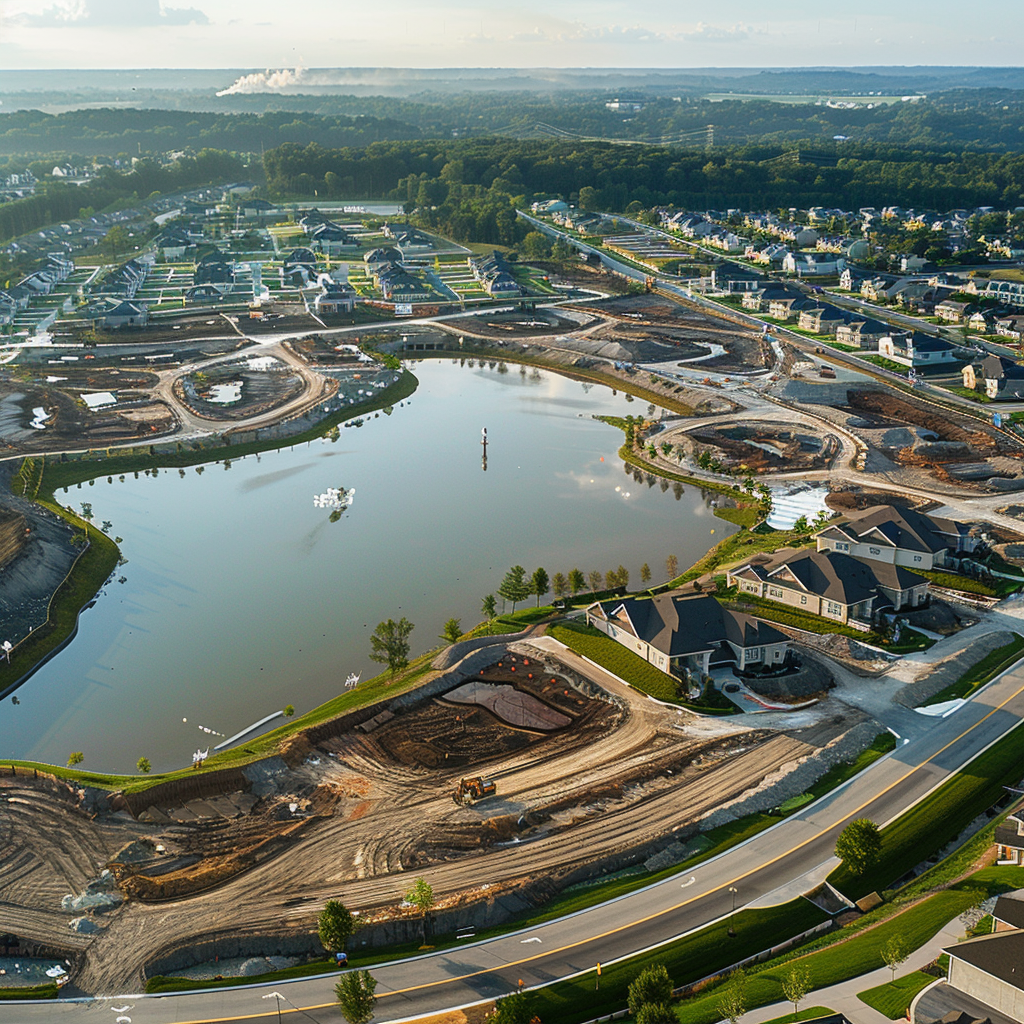


The process of developing land can be described as a complicated multi-faceted process that turns the land into a suitable location to construct. It doesn't matter if you want to create an urban neighborhood or commercial complex or even an industrial park, knowing the phases that go into land planning is vital. This article is intended to guide you through these phases to ensure everybody from real property developers to urban planners and community members understand the basic principles to the procedure. For more insights on essential elements of land development, you can read our article on the 8 critical elements of land development.
Land development isn't only about building structures, it's about meticulous planning and execution that includes multiple steps. Each one of these phases needs attention to detail as well as the appropriate methods to ensure a project's success. We'll go over these phases, giving you a better understanding of what is required to take an idea for land development from idea to reality. Explore the stages of the land development process.
The initial step in any land development procedure is identifying and purchasing the appropriate area of land. This includes:
When a suitable location is discovered, the process of negotiating to purchase the property begins. This usually involves multiple parties including the lawyers, sellers and financial institutions.
This is an essential aspect in determining whether to determine the viability of a venture. Developers engage in:
The results of these research studies assist in obtaining various permits from local authorities and authorities, which is a vital prerequisite before any physical work can be started.
This step transforms the initial idea into a specific, actionable plan. This is what it entails:
The mapping of a complete plan which includes roads, land use utilities, and public areas.
In the design phase, you must create the structures and infrastructure that is required typically with the help of architects, urban planners and engineers.
Before any construction takes place, the location has to be cleared. This includes:
Integrating the development of the site with aesthetic and environmental aspects.
After the foundations are completed, the actual building of facilities and buildings starts. This phase typically includes:
As per the plans for architectural design, you can build commercial, residential, as well as industrial constructions.
ensuring that constructions are in compliance with the specifications of the project and meet quality standards.
Although construction may be close to its completion, the process of promoting and selling or leasing the buildings begins. Strategies that work include:
Utilizing different platforms to connect with potential tenants or buyers.
Final deals that reflect the potential and value of the land being developed.
The realm of land development is intricate and multifaceted, with each phase presenting its own set of hurdles and requirements. For developers embarking on such ventures, a thorough understanding of these stages is paramount for effective project organization and management. By meticulously adhering to these steps, not only can you ensure compliance with legal and environmental standards, but you can also tailor your project to best serve the intended community.
For comprehensive insights tailored specifically to developers, Developers Research offers a wealth of resources and expertise. Through their services, such as land development evaluation, they provide invaluable guidance on navigating the complexities of the development process. By leveraging their expertise, developers can make informed decisions that streamline projects and maximize their impact. For more information on land development evaluation, you can explore their services here.
As you contemplate your next development endeavor, keep in mind the invaluable insights gained from this research. Let these guidelines serve as your compass, navigating you through the complexities of land development with precision and efficiency. Remember, each project holds the potential to significantly impact communities and landscapes. Thus, it is imperative that your actions are informed and meticulously planned every step of the way.
For more in-depth research and guidance tailored to developers, consider exploring further resources provided by Developers Research.
Developers Research offers a range of services tailored to developers, including land development evaluation. Their expertise and resources provide invaluable guidance on navigating the complexities of the development process, ensuring informed decision-making and streamlined projects.
Successful land development projects require thorough planning, compliance with legal and environmental standards, effective project organization, and community engagement. Developers must also adapt to market dynamics and emerging trends.
Developers Research offers expertise in various aspects of land development, including site selection, feasibility analysis, market research, regulatory compliance, and project management. Their comprehensive insights and resources are designed to empower developers to make informed decisions and achieve success in their endeavors.
Land development involves the process of turning raw land into a usable and profitable asset through planning, design, and construction. It's crucial for creating communities, commercial spaces, and industrial areas that meet the needs of society while adhering to legal and environmental standards.
During the Construction stage, Developers Research emphasizes the importance of quality checks and adjustments to ensure that constructions are compliant with project specifications and meet quality standards.